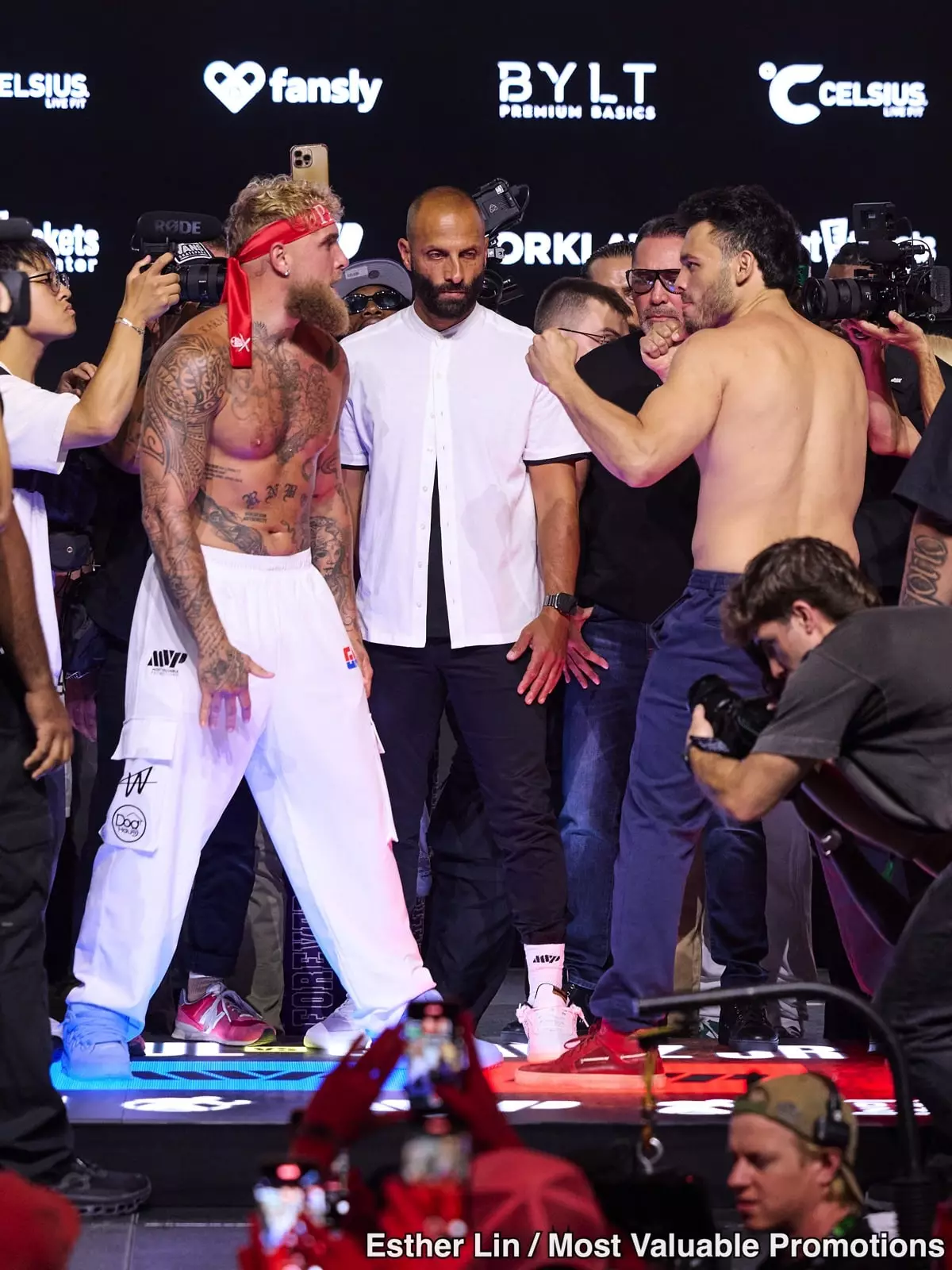Jake Paul’s latest cruiserweight showdown against Julio Cesar Chavez Jr. at the Honda Center in Anaheim is more than just another fight—it embodies the tensions and contradictions currently permeating professional boxing. Paul, a YouTuber turned pugilist, steps into the ring with something to prove, banking on a spectacle that polarizes both fans and critics. Yet, the undercurrents speak to a deeper unease with the state of the sport, where fights sometimes feel engineered for spectacle rather than genuine athletic competition. This event, headlined by Paul (11-1, 7 KOs) facing Chavez Jr. (54-6-1, 34 KOs), epitomizes the clash between commercial hype and sporting legitimacy.
The Undercard: A Blend of Rising Talent and Seasoned Journeymen
While Paul’s fight draws controversy, the undercard paints a more authentic picture of boxing’s evolving landscape. Emerging prospects like Joshua Edwards, an anticipated 2024 U.S. Olympian, showcased their potential decisively, with Edwards delivering a first-round knockout reminiscent of traditional heavyweight power. Likewise, Alexander Gueche, an unbeaten bantamweight, demonstrated technical prowess with a dominant unanimous decision victory, underscoring the presence of genuine promising talent in the sport’s depth.
Veteran fighters like Rene Alvarado and John ‘Scrappy’ Ramirez also highlighted the enduring grit found beneath the high-profile bouts, engaging in contests that displayed boxing’s raw competitiveness. Their performances contrast sharply with the narrative surrounding the Paul-Chavez Jr. fight, which many spectators dismiss as a mismatch crafted for pay-per-view dollars rather than sporting merit.
The Controversy Around Paul vs. Chavez Jr.: A Manufactured Spectacle?
The centerpiece bout, however, remains the most debated aspect of the event. Many boxing aficionados criticize the matchup as a farce—Paul’s selection of Chavez Jr., a once-feared name now viewed as a fading remnant of his prime, is perceived as a calculated move to inflate Paul’s record. This criticism speaks to a larger problem in modern boxing: the blending of entertainment and athletic competition to the point where motives may prioritize financial gain over genuine sporting challenge.
At $59.99 on DAZN pay-per-view, fans expect a contest worthy of their investment. Skepticism lingers, though, because the fight’s competitiveness feels uncertain, prompting reflections on whether boxing benefits or suffers when personalities with limited authentic credentials headline such high-stakes events. Paul’s venture into cruiserweight realms and his high-profile status bring undeniable attention but also expose friction between traditionalists and new-age boxing’s commercial ambitions.
Other Noteworthy Battles: Quiet Yet Significant
Aside from the lightning rod of Paul’s fight, other card attractions offer valuable insights into boxing’s current dynamic. Gilberto “Zurdo” Ramirez defending his WBA and WBO cruiserweight titles against Yuniel Dorticos highlights a subtle issue—lack of mainstream fan interest despite the technical intrigue. Dorticos, a powerful knockout artist, has faded somewhat from public consciousness due to inactivity, eroding the anticipation younger audiences might have for bouts historically regarded as compelling.
Meanwhile, the lightweight clash between Floyd Schofield, an undefeated prospect, and Tevin Farmer, an experienced former champion, restores some competitive balance and fan intrigue. Both fighters bring contrasting trajectories: Schofield’s rising momentum versus Farmer’s resilience despite recent setbacks establishes a genuine 50-50 contest, embodying the excitement of boxing’s unpredictability.
Boxing’s Crossover Moment: Between Authenticity and Entertainment
Jake Paul’s cruiserweight headliner and the evening’s broader card encapsulate a transitional moment for boxing, where the sport treads a thin line between preserving its martial authenticity and embracing mass entertainment’s commercial potential. Paul symbolizes this crossover—his rise fueled by social media fame rather than traditional boxing pedigree challenges purist notions but undeniably expands viewership and revenue.
However, this model risks alienating core fans who seek genuine competition over spectacle. The event serves as a microcosm of boxing’s ongoing identity struggle: how to reconcile the influx of celebrity-driven bouts with the sport’s fundamentals, fostering environments where burgeoning talents like Joshua Edwards receive the spotlight they deserve alongside headline-grabbing entertainers.
This evolving boxing ecosystem tests fan loyalty, athlete credibility, and promotional ethics, underscoring a sport in flux. Jake Paul’s cruiserweight clash will be remembered not only for its in-ring outcome but also for its symbolic encapsulation of boxing’s contemporary contradictions.

